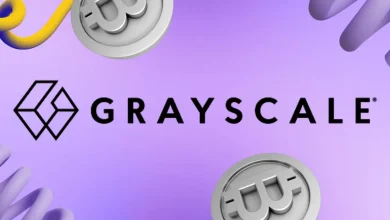
The US Court of Appeals for the Fifth Circuit ruled that the OFAC overstepped its authority.
The court determined that Tornado Cash's immutable smart contracts are not "property".
This ruling is a significant win for the crypto privacy sector.
The United States Court of Appeals for the Fifth Circuit ruled that the sanctions against crypto mixer Tornado Cash by the US Treasury Department were unlawful. This decision, issued on November 26, determined that the Office of Foreign Assets Control (OFAC) exceeded its congressionally defined authority in sanctioning Tornado Cash’s smart contracts.
This ruling is a significant moment for the crypto industry, particularly for privacy advocates.
Smart Contracts Are Not Property, Says Court
A key point in the ruling is that Tornado Cash’s immutable smart contracts cannot be considered “property.” These privacy-focused codes, which are open for anyone to use, are not owned by any individual or entity.
As a result, they do not fall under the sanctions typically applied to foreign individuals or organizations.
“We hold that Tornado Cash’s immutable smart contracts (the lines of privacy-enabling software code) are not the “property” of a foreign national or entity, meaning (1) they cannot be blocked under IEEPA, and (2) OFAC overstepped its congressionally defined authority,” the court ruling noted.
A Victory for Open-Source Tech
This decision marks a major win for the crypto privacy sector, which has faced increasing regulatory pressure. It highlights that open-source technologies like Tornado Cash cannot be entirely banned due to the actions of a few bad actors.
“No one wants criminals to use crypto protocols, but blocking open source technology entirely because a small portion of users are bad actors is not what Congress authorized,” said Paul Grewal, Chief Legal Officer at Coinbase Global.
Developer Alex Pertsev Fights Back
While the U.S. ruling provides some relief, Tornado Cash developer Alex Pertsev is still battling legal troubles in the Netherlands. Convicted of money laundering and sentenced to 64 months in prison earlier this year, Pertsev is now appealing the verdict, hoping for a more favorable outcome.
Crypto Markets React
Following the court decision, Tornado Cash’s native token saw a dramatic surge. It spiked over 10x on Tuesday before cooling slightly during early Wednesday trading. At the time of writing, the token was trading around $20.66, reflecting a 500% jump in the past 24 hours.
With a fully diluted valuation of approximately $146 million, analysts predict the token could rally toward its all-time high of $436, set during the 2021 bull market.
FAQs
The Fifth Circuit found OFAC exceeded authority, as Tornado Cash’s immutable smart contracts aren’t “property” under U.S. law.
The ruling protects open-source crypto protocols, reinforcing privacy rights while limiting government overreach on decentralized tech.
No, using Tornado Cash is not illegal; the Fifth Circuit ruling protects its open-source smart contracts, as they can’t be owned or sanctioned.
While privacy protocols celebrate, the tension between technology and authority grows sharper. What comes next? Stay tuned.







